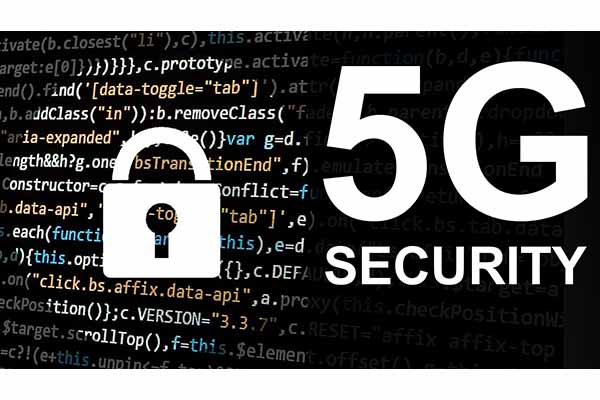With the 5G rollout in India set to trigger a data boom across the tech ecosystem by massively augmenting data consumption and bringing about a sea change in how businesses communicate, concerns about data breach have sent the alarm bells ringing.
The widespread adoption of technology has its pitfalls, too, and data breach has cropped up as one of its most serious fallouts.
User information and data are often manipulated and misused, causing a grave threat to both personal privacy and confidentiality of businesses. Since data is among the most important assets of any business, its security assumes paramount importance.
While 5G rollout will endow the linked devices with better interconnectivity, faster speeds and ultra-low latency as compared to 4G, the expanded network will also offer multiple opportunities to hackers and cyber criminals for breaching the network. The 5G super speeds augur well for all verticals, but their flipside cannot be ignored. Since it is the software that manages the 5G network, it is highly prone to hacking, giving cyber criminals an easy opportunity to hack both the network and the network manager.
Moreover, the expanded bandwidth of 5G makes it cheaper and easier for hackers to acquire and utilise technologies meant to attack the network. We should counter this by exploring and adopting innovative technologies which can easily adapt to the new-age 5G network and provide both tamperproof data security and digitally safe communication networks. Due to its inherent decentralisation, blockchain is an ideal tool for thwarting online threats. Blockchain data is immutable, and consensus is needed to confirm transactions. This ensures high-level of protection when it comes to sensitive data. The ledger technology employed by blockchain has several uses, ranging from medical and financial data sharing to encrypted messaging platforms and monitoring of financial frauds.
Blockchain and data protection
Blockchains inherently have several in-built security checks like cryptography, public and private keys, software-mediated consensus, contracts and identity controls. These in-built features provide data protection and integrity. The blockchain configurations of confidentiality, integrity and availability, referred to as the CIA mode in web security parlance, also offer improved resilience, transparency and encryption.
The transparency and traceability of blockchain have widespread benefits in different sectors, especially manufacturing, healthcare and agriculture. In a supply chain context, a digital ledger has the ability to store tamper-proof records. Another core area where blockchain can prove to be a security game-changer is smart home and smart devices. When smart devices will eventually be connected to 5G networks, they may prove to be a playing field for hackers and cyber criminals, who tend to target new technologies as they are often more vulnerable.
Apart from businesses, blockchain for smart cities and Internet of Things (IoT) technologies can ensure that cyber security remains a fundamental component of the entire system, which includes all devices in a city where data is being constantly stored.
Two types of cyberattacks
Cyber criminals use two common types of cyberattack: “botnet”, which takes control of internet-connected devices and uses them as weapons in a cyberattack; and “distributed denial of service” (DDOS), which floods a network or website with more messages than it can deal with.
When hackers or criminals break into a device connected to 5G, the speed of the network will enable them to extract and download information, including personal data and customer information, much faster than before.
Homes with 5G network are also prone to risk. Robocallers driven by artificial intelligence can also trigger cyberattacks by persuasively mimicking your near and dear ones.
There are security concerns for businesses as well if employees make use of 5G networks instead of their corporate networks to share confidential information.
The blockchain shield
In smart homes, devices are connected to each other, and these connections are centered on gateways. However, the centralised structure of gateways presents multiple security vulnerabilities like integrity, certification and availability. A blockchain-based smart home gateway network is a good idea to address these vulnerabilities. This network consists of three layers, including device, gateway and cloud layers.
Blockchain technology is employed at the gateway layer, wherein data is stored and exchanged in the form of blocks to support decentralisation and overcome the problems occurring from traditional centralised architecture. Blockchain ensures integrity of data both inside and outside smart homes.
Blockchain can also serve as a secure repository of data/transactions for various Artificial Intelligence (AI) algorithms. Consensus algorithms, the immutable nature of transactions stored in the blockchain and cryptography-based security help ensure data integrity and security.
Big data analytics is the answer
Data processing has become a challenge as a result of the enormous growth in data collection from wireless devices, wireless sensor networks and network operators. The enormous amount of data can be broadly divided into raw data and right data. If the right data is successfully extracted from such a large volume of raw data, the 5G network can be optimised. Big data analytics can provide this solution.
As big data deals with extremely large data sets, making connections much faster and more reliable will increase capabilities phenomenally.
Currently, IoT devices are now forced to rely on their own CPUs and internal memory due to speed and latency restrictions. With 5G rollout, it will be possible to do most computational tasks in the cloud, thus lowering the cost of IoT devices and enabling big data to a large extent.
This is just one example of how data collection capabilities will be enhanced. In addition to an increase in smart devices, faster speeds will enable the collection of more data in a wider range of conditions.
If downloading enormous media files will take seconds with 5G, imagine how big a boom big data agencies will see due to the ability to download certain data sets 10 times, if not 100 times, faster than before.
Given its broad and dynamic framework and decentralised nature, blockchain technology is not only easily customisable for different functions, businesses and individuals, it is the answer to ensuring data confidentiality and data integrity after the rollout of 5G services.
About the Author:
Vikram R Singh, Founder and CEO of Antier, a leading blockchain consulting firm.















